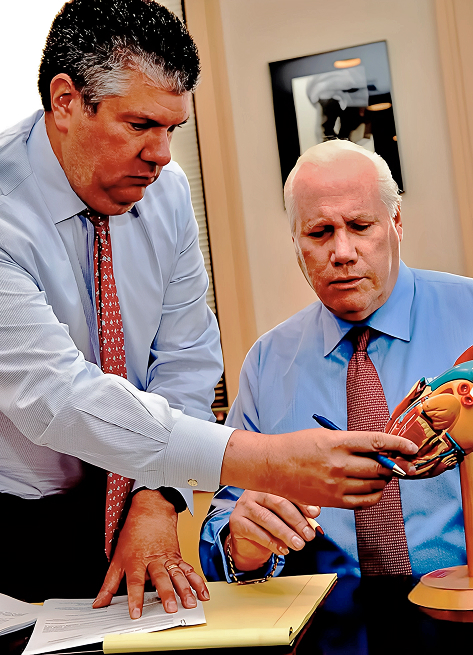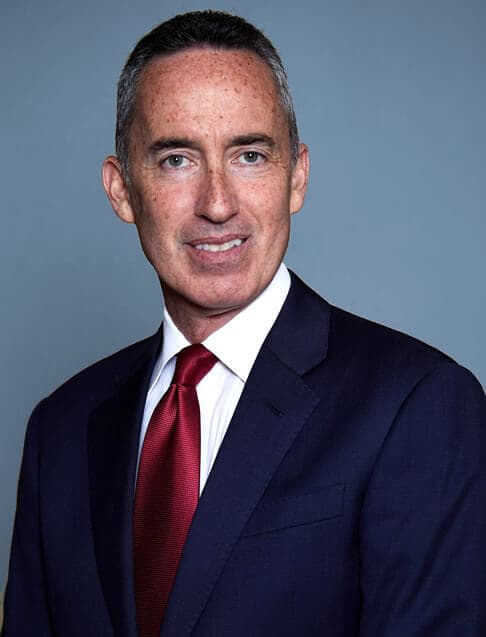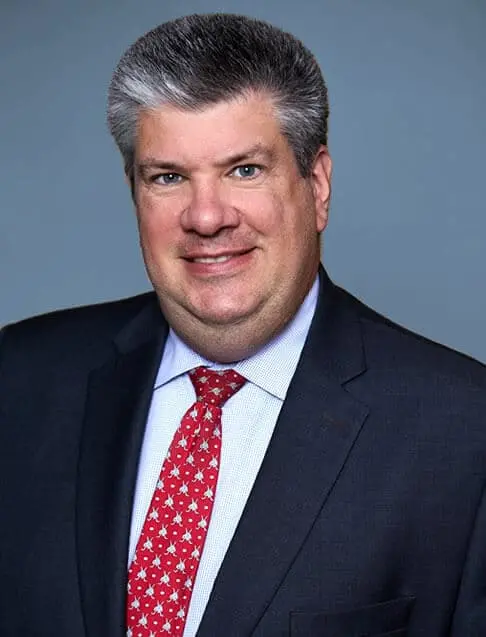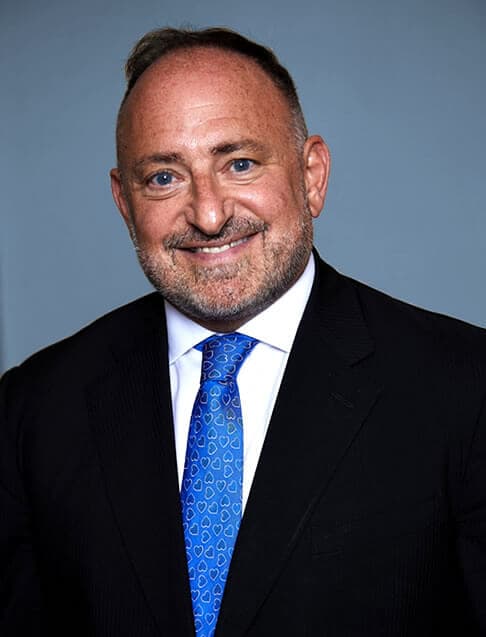Sepsis is a life-threatening condition that can develop as a result of untreated or improperly managed infections. Each year, it affects thousands of people in New York, often leading to long-term health complications, severe financial burdens, and unimaginable emotional tolls on both victims and families.
Those who develop sepsis because of someone else’s carelessness, such as improper medical care or unsafe conditions, face an uphill battle in pursuing justice.
That’s where a New York Sepsis Attorney can step in and secure compensation while you focus on recovery.
Schedule a Free Case Evaluation
New York Sepsis Guide:
- What Should You Know About Sepsis Compensation In New York?
- What To Do in the Days After a Sepsis Diagnosis
- The Hidden Dangers of Sepsis In New York
- The Battle Against Insurance Companies
- Workplace Injuries and the Risk Of Sepsis in New York
- The Hidden Costs of Delayed Sepsis Treatment
- How Queller Fisher can help you
- Call, Don’t Hesitate
Why Choose Queller Fisher as Your New York Sepsis Attorney

When you choose Queller Fisher, you’re putting your future in the hands of attorneys who fight for victims’ rights with precision and passion.
Here’s why so many individuals and families trust us during their most challenging times:
- Consistent case preparation: We treat every case like it’s headed for trial, making sure nothing slips through the cracks. Our thorough preparation ensures insurers and defendants understand the seriousness of your claim.
- Recovered over $1 billion in verdicts and settlements: With a proven record of obtaining significant results, we have secured justice for thousands of clients who faced unimaginable adversities.
- Personalized attention: Every client is treated with care and respect. You’re never a case number to us—we take the time to fully understand your unique story.
- Decades-long NYC experience: With more than 60 years of legal history in New York City and the White Plains, we bring unmatched local insights into navigating the courts and laws in this area.
- Contingency fee basis: There are no legal fees unless we win your case. We take the financial worry off your shoulders so you can focus on recovering.
What Should You Know About Sepsis Compensation In New York?
Sepsis cases often involve massive financial strain, especially when the condition leads to long-term medical complications or permanent injuries. New York law allows victims to pursue compensation for a wide range of damages stemming from sepsis-related negligence.
Compensation can include the following types of damages, depending on the severity of the case and the evidence presented in court or settlement negotiations:
Economic Damages
These are losses that come with a clear financial cost.
Common examples include:
- Medical expenses: Covering hospital stays, surgeries, diagnostic tests, medications, rehabilitation, and any ongoing medical care needs.
- Lost wages: Many sepsis victims cannot work while recovering. Compensation often covers time missed at work and, in severe cases, diminished earning potential if a full return to work is not possible.
- Home care or assisted living support: If your condition requires help with daily activities or permanent medical assistance, these costs can be awarded as damages.
Non-Economic Damages
This category covers the emotional and physical suffering caused by sepsis. While not as easily calculated, these damages are just as real.
Examples include:
- Pain and suffering: Compensation for the physical pain and emotional anguish you’ve endured.
- Loss of enjoyment of life: Sepsis sometimes limits a person’s ability to engage in hobbies, activities, or relationships they once enjoyed.
- Disfigurement or disability: If sepsis leads to life-altering physical changes, awards may account for the profound impact on a victim’s self-esteem and mobility.
Our team at Queller Fisher ensures nothing is overlooked when calculating compensation. We fight to recover damages that truly reflect the full scope of harm inflicted by negligence.
What To Do in the Days After a Sepsis Diagnosis

The period following a sepsis diagnosis is critical—not only for your health but also for protecting your legal rights. Though immediate medical treatments take priority, there are steps you should take in the ensuing days and weeks to strengthen your potential case.
Follow all medical advice
Sepsis recovery often involves prolonged hospital stays and ongoing care. Attending all follow-up appointments and adhering to treatment protocols helps build a strong link between negligence and the harm suffered.
Create a health diary
Keep detailed records of your symptoms, progress, and any setbacks post-diagnosis. Journaling how the condition has impacted your daily life creates compelling evidence during legal proceedings.
Gather documentation
Collect any hospital records, bills, medication receipts, and communication with healthcare providers. Together, these documents illustrate the severity of your experience and validate your financial claims.
Consult an attorney early
The sooner you reach out to a sepsis attorney, the better equipped they’ll be to gather relevant evidence. Timely legal intervention ensures key documents and witnesses aren't lost over time.
The Hidden Dangers of Sepsis In New York
Sepsis is often called a "silent killer" because it can progress rapidly without visible symptoms until it’s too late. While this condition can develop anywhere, the fast-paced and crowded nature of New York City means local residents face unique challenges in recognizing and addressing infections before they evolve into sepsis.
Persistent risks in healthcare settings
From major hospitals to smaller neighborhood clinics, overburdened facilities in NYC can result in lapses in care. Missed symptoms of infection, failure to prescribe antibiotics, or lack of proper surgical instruments all increase the risk of developing sepsis.
Occupational hazards in a bustling city
Construction workers, restaurant employees, and healthcare personnel in New York often face higher exposure to environments where injuries or infections occur. Working long hours in these industries sometimes means victims delay seeking care for what may seem like minor injuries or illnesses.
Queller Fisher understands these unique local factors and brings decades of experience advocating for NYC families, workers, and patients affected by negligence.
The Battle Against Insurance Companies
Insurance companies often seem eager to settle—but that doesn’t mean they’re looking out for your best interest. Facing insurers on your own can leave you undercompensated and overwhelmed with the process.
Here’s why it can be so difficult to secure the funds you’re entitled to after developing sepsis due to negligence.
Quick settlements with hidden costs
One of the most common tactics insurers use is offering a settlement quickly after a claim is filed. These offers are almost always lower than what victims deserve, counting on your desperation to cover immediate costs.
Denials over insufficient evidence
Insurers may claim that there's no clear connection between negligence and your condition, especially in cases tied to medical malpractice or workplace exposure. Without detailed documentation, fighting these claims can become an uphill battle.
Delays that frustrate victims
Some companies deliberately extend the claims process, sending requests for additional documentation, referrals, or other tactics in order to wear victims down.
Workplace Injuries and the Risk Of Sepsis in New York

Workplace injuries in New York can happen in an instant, but their consequences often last far longer. For some workers, wounds or infections sustained on the job can spiral into life-threatening conditions like sepsis.
High-risk industries for sepsis-related injuries
Certain jobs in New York put workers at a higher risk of developing infections that may lead to sepsis.
Examples include:
- Construction
Construction workers regularly operate in environments with sharp tools, heavy machinery, and debris. Any cut, puncture, or untreated wound can quickly lead to an infection.
Dirty or unsanitized equipment, combined with demanding schedules, can delay attention to these injuries, increasing the risk of sepsis.
- Food service
Employees working in restaurants or food processing plants encounter bacteria and unsanitary conditions daily. A small injury, such as a slicing accident in a kitchen or exposure to unsensitized surfaces, can lead to infections that go unnoticed until sepsis develops. - Healthcare workers
Those working in New York’s busy hospitals, clinics, and nursing facilities are frequently exposed to infectious diseases and bacteria. - Sanitation and waste management
Handling trash, hazardous waste, or biohazardous materials also increases exposure to bacteria. Workers in these roles often sustain wounds or cuts, which can serve as gateways for dangerous infections if not treated promptly.
When is an employer responsible?
Employers in New York are required to maintain a safe work environment. This includes providing workers with the proper tools, protective equipment, and training necessary to prevent injuries and reduce infection risks.
However, negligence can occur in various forms, such as:
- Failing to supply or enforce the use of safety equipment like gloves or boots.
- Not maintaining clean and sanitary work conditions, especially in food service or healthcare settings.
- Pressuring employees to work through injuries without seeking medical treatment.
- Ignoring workplace regulations designed to prevent injuries and infections.
When an employer's negligence leads to unsafe conditions or delays adequate medical attention, they may be held liable for injuries and the development of sepsis.
At Queller Fisher, we work with sepsis victims to identify all the areas where compensation is needed. Whether through employer accountability, workers’ compensation claims, or third-party lawsuits, we’re committed to ensuring that victims and their families aren’t left with negligence alone.
The Hidden Costs of Delayed Sepsis Treatment

When sepsis is not diagnosed and treated quickly, the consequences can be devastating. This life-threatening condition worsens with every passing hour, making immediate medical attention not just important but absolutely necessary.
Delays in care often lead to more severe health outcomes, higher medical expenses, and extended recovery times for victims.
How delays happen in sepsis cases
Understanding how delays occur can shed light on the hidden costs victims face. Medical negligence is one of the most common reasons why treatment for sepsis is postponed.
Some examples include:
- Misdiagnosis of early symptoms
Sepsis symptoms, such as fever, rapid heart rate, or confusion, can mimic other less severe conditions. Sometimes, doctors fail to recognize warning signs, dismissing them as flu symptoms or a mild infection. By the time sepsis is correctly diagnosed, the condition may have escalated to a critical stage. - Failure to administer prompt treatment
Even after diagnosing an infection, medical professionals may not act swiftly enough to prevent sepsis from developing. Delays in administering antibiotics or fluids can give the infection enough time to spread throughout the body. - Lack of proper monitoring
Patients recovering from surgery or other medical conditions are at higher risk of developing sepsis. Failing to monitor these individuals closely can lead to missed early indicators, which could have been treated before they escalated.
When sepsis is left untreated or treatment is delayed, the financial burdens can skyrocket. Victims often face costs that extend far beyond initial hospital visits.
Some of the hidden costs include:
- Extended hospital stays
Delayed treatment often means longer admissions, including time in the intensive care unit. These stays come with significant costs that quickly add up for victims and their families. - Permanent health complications
Without immediate care, sepsis can lead to long-term damage to vital organs, such as the heart, kidneys, or lungs. Survivors may need medical care for the rest of their lives, further increasing expenses. - Loss of independence
Severe cases of sepsis can lead to amputations, cognitive impairments, or other disabilities. Many victims require ongoing rehabilitation or assistance with daily activities, which carries additional financial and emotional weight. - Missed income
A prolonged recovery can mean weeks, months, or even years away from work. For some victims, returning to their previous job may not be possible, eliminating their primary source of income altogether.
By gathering medical records, consulting with experts, and building a strong argument, we ensure that those responsible are held to account. The costs of delayed care are overwhelming, but you don’t have to face them alone.
How Queller Fisher can help you

When you work with Queller Fisher, you’re not entering these negotiations alone. Our seasoned attorneys bring confidence to the table, ensuring insurers take opponents seriously.
We take on the heavy lifting by gathering evidence, handling communication, and aggressively pursuing what your personal injury case is worth. Whether through settlement or trial, we fight every step to ensure you receive the financial support you need.
Call, Don’t Hesitate
Sepsis is enough of a burden. Finding justice shouldn’t be. With New York personal injury attorneys at Queller Fisher on your side, you have a dedicated legal team ready to take immediate action on your behalf. Call 212.406.1700 or 718.892.0400 today to discover how we can assist you. It’s easier with us by your side.
Schedule a Free Case Evaluation